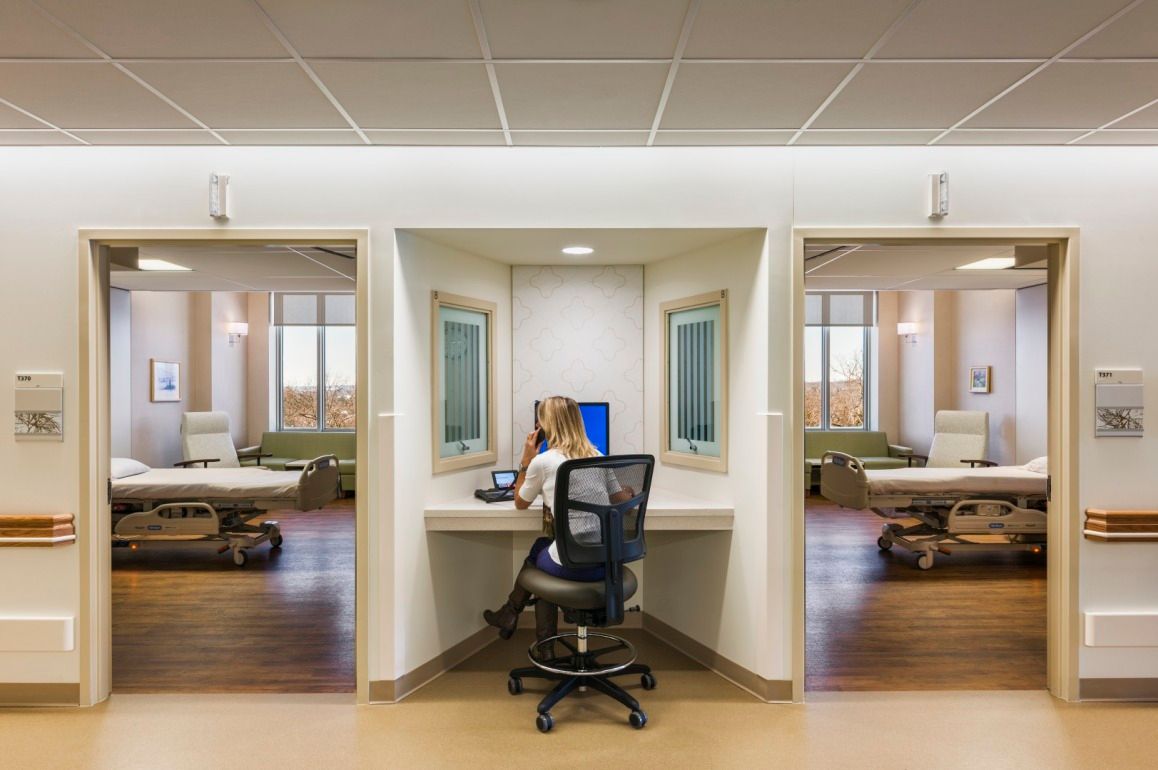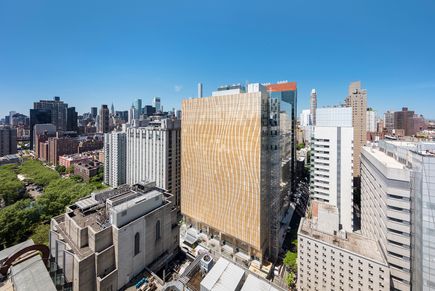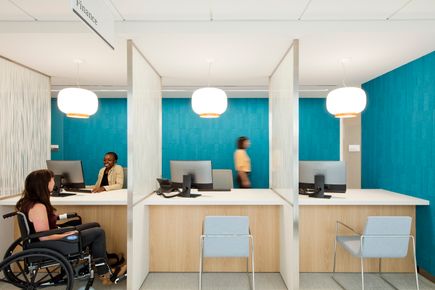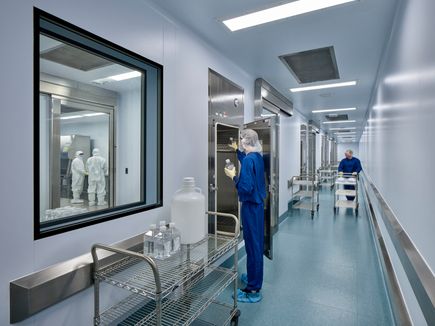Post-Occupancy Research Exhibited at European Healthcare Design Congress and SALUS Global Knowledge Exchange
Share

As part of Ballinger’s commitment to designing facilities that optimize the healthcare experience for patients, families, and staff, our teams conduct post-occupancy evaluations (POE) on completed projects to assess and monitor how they are used. Particularly illuminating was a recent POE conducted on the new Lasko Tower at Penn Medicine Chester County Hospital (PMCCH).
The research team, led by Ballinger Senior Principal Louis Meilink, Jr., FAIA, FACHA, ACHE and Senior Project Healthcare Planner Christina Grimes, AIA, LEED AP BD+C, EDAC, assessed how effective the inclusion of decentralized caregiver stations are toward improving staff and patient experience in the medical/surgical inpatient environment. By comparing four new floors of the tower, each with a unique layout featuring decentralized caregiver stations, to the hospital’s existing units which previously accommodated the same patient populations and were built with a single caregiver station, they were able to control for patient populations and consistent staff. The result was a study focused solely on the physical environment.
The POE findings were strongly indicative of the benefits of decentralized caregiver stations. Patient and staff overall satisfaction scores increased by 113% in the new Lasko Tower units as compared to the pre-existing hospital units featuring central nursing cores. Sixty-six percent of staff felt that decentralized stations improved their ability to deliver quality patient care, and ninety-one percent of patients said that the stations improved the way they felt cared for in the new building. The decentralized stations resulted in reduced walking distances and increased patient time for staff, as well as improved fall rates and noise levels for patients. These results suggest an improved patient care environment.
The study was displayed at the 2017 European Healthcare Design Congress held at the Royal College of Physicians in London, UK, and published by SALUS Global Knowledge Exchange, a global media, publishing and research organization whose mission is improving human and planetary health.
Tagged
- Resources |
- Architecture |
- Interiors |
- Planning |
- Healthcare



